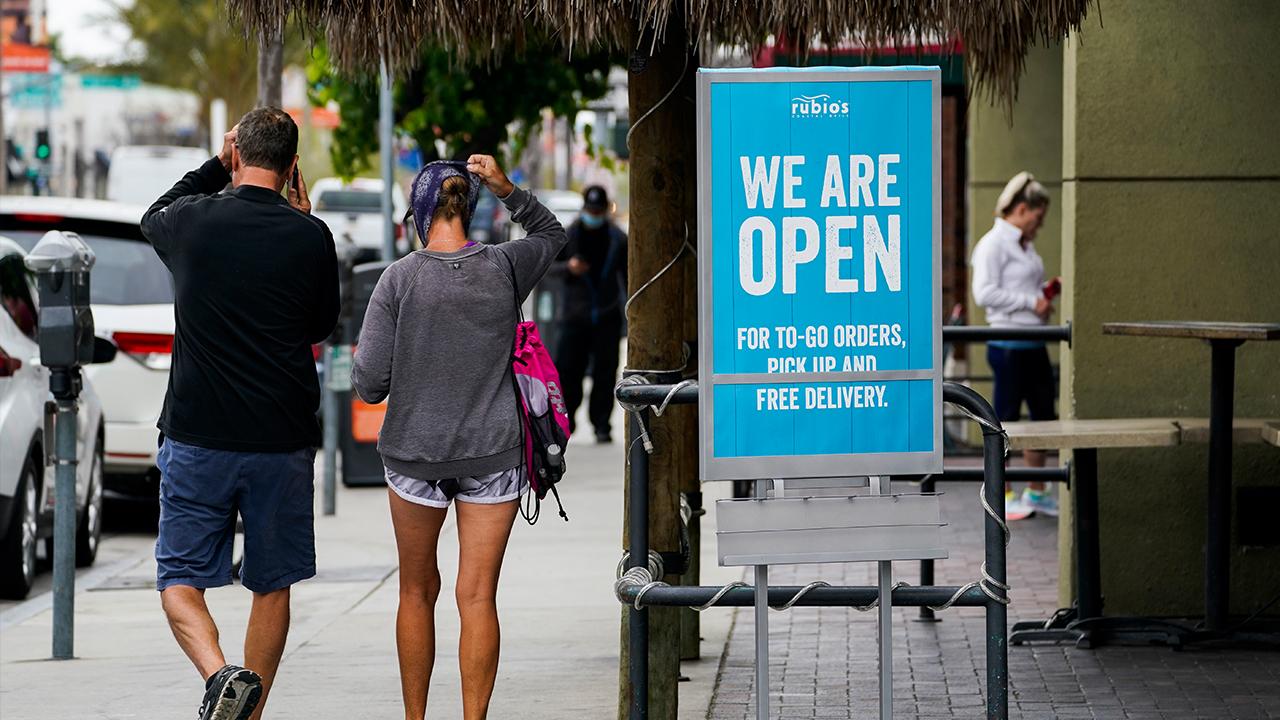US consumer sentiment inches higher unexpectedly following coronavirus stimulus checks
The improvement follows the $2.2T CARES Act, which sent a one-time payment of up to $1,200 to millions of Americans
Get all the latest news on coronavirus and more delivered daily to your inbox. Sign up here.
U.S. consumer sentiment edged higher in the first weeks of May after Congress signed a massive economic-relief package designed to protect American workers and businesses from the coronavirus pandemic, according to preliminary data released Friday by the University of Michigan.
The May print on consumer sentiment inched slightly higher to 73.7 in May from 71.8 in April, the new figures showed. Economists surveyed by Refinitiv expected consumer sentiment to drop to 68 in May.
The expectations index dropped to 67.7, the lowest level since 2013, while the measure of current conditions rose 8.7 points to 83.
VIRUS OUTBREAK ERODED AMERICANS' FINANCES, FED STUDY SAYS
Despite the modest gains, personal financial prospects for the year ahead continued to decline, falling to the lowest level in nearly six years.
“Confidence inched upward in early May as the CARES relief checks improved consumers’ finances and widespread price discounting boosted their buying attitudes,” Richard Curtin, director of the survey, said in a statement. “Despite these gains, personal financial prospects for the year ahead continued to weaken.”
CONGRESS HAS FUNNELED TRILLIONS TO VIRUS RELIEF EFFORTS. WHERE IS THAT MONEY GOING?
Asked about their top concerns from the virus outbreak, a majority of survey respondents -- 61 percent -- cited the health threat. Those that cited financial damages as their top concern dropped to 17 percent in May, down from 22 percent in April. Americans, however, were more worried about social isolation -- it was the top concern among 21 percent of respondents in May, up from 14 percent last month.
A separate report on Friday showed that retail sales plunged by a record-shattering 16.4 percent in April. It was the second straight month of declines for the industry as the virus outbreak forces American life to come to a grinding halt and marks the steepest decline since March, when they plunged 8.7 percent. The government began tracking retail sales in 1992.
FED'S KAPLAN WARNS OF 'HISTORIC' CONTRACTION, SEES NEED FOR MORE STIMULUS




















